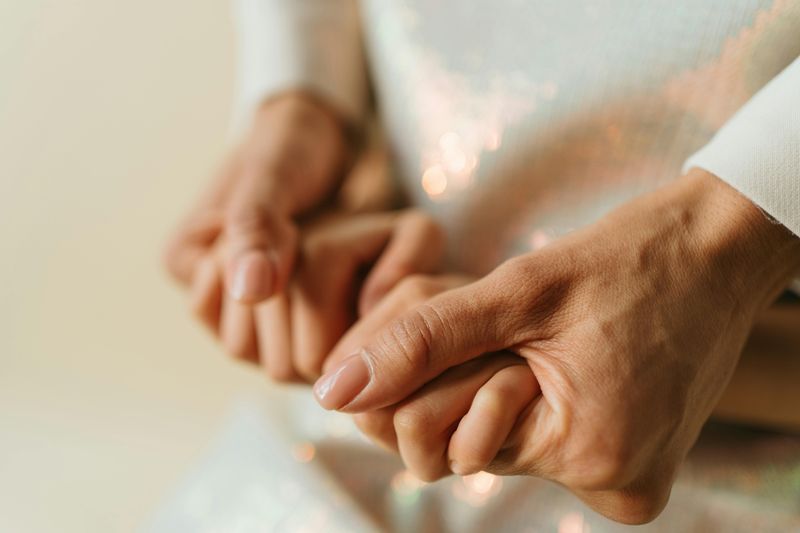Relationships naturally evolve over time, but certain behavioral shifts might signal deeper emotional changes beneath the surface. Recognizing these subtle cues early can help couples address underlying issues before they grow into larger problems.
Understanding these behavioral indicators isn’t about finding fault but opening doors to honest conversations about feelings and needs.
1. Communication Patterns Suddenly Change

Someone who once shared every detail of their day now offers only brief summaries. Or maybe a typically quiet partner suddenly overshares about everything except what really matters.
These shifts in communication style often reflect emotional distance or anxiety about certain topics. Pay attention when conversation patterns change dramatically without obvious explanation.
2. Physical Affection Decreases (Or Increases)

Touch speaks volumes in relationships. A noticeable reduction in hugs, hand-holding, or casual physical contact might indicate emotional withdrawal.
Conversely, a sudden increase in physical affection could signal insecurity or compensation for guilt. Watch for changes that feel inconsistent with your relationship’s established patterns rather than natural evolution.
3. Eye Contact Becomes Rare

Eyes reveal emotional states we can’t always verbalize. When a partner consistently avoids meeting your gaze during conversations, something significant might be happening beneath the surface.
This avoidance often stems from discomfort, guilt, or emotional disconnection. Notice if meaningful eye contact has been replaced with downward glances or distracted attention.
4. Phone Guarding Intensifies

Suddenly turning phone screens away or adding new passcodes represents a clear boundary shift. While privacy deserves respect, dramatic changes in device openness often signal something’s changed.
Maybe they’re processing personal struggles they’re not ready to share, or perhaps something more concerning is happening. The key is noticing the pattern shift from previous norms.
5. Future Talk Disappears

Remember those late-night conversations about dream homes, future travels, or growing old together? When someone stops including you in their future vision, it reflects changing emotional investment.
Listen for shifts from “we” to “I” in future plans. Notice if discussions about next year’s vacation or next month’s events suddenly feel uncomfortable or are consistently avoided.
6. Interest In Your Life Fades

Genuine curiosity about your experiences, thoughts, and feelings forms the foundation of emotional connection. When standard questions like “How was your day?” disappear, emotional investment might be waning.
This shift often happens gradually; fewer follow-up questions, less enthusiastic responses to your news, or conversations that feel increasingly one-sided.
7. Conflict Patterns Transform

Every couple has a signature way of handling disagreements. Major shifts in conflict style often signal emotional changes.
A partner who always expressed frustration openly might suddenly withdraw completely during arguments. Or someone who typically sought compromise might become inflexible. These changes reflect shifting emotional investment or mounting resentment beneath the surface.
8. Routines Together Become Burdensome

Shared rituals create relationship glue; morning coffee, evening walks, weekend traditions. When these moments together start feeling like obligations rather than pleasures, emotional shifts are likely occurring.
Watch for increased cancellations of regular activities, shortened time together, or physical presence without emotional engagement during previously cherished routines.
9. Financial Secrecy Emerges

Financial transparency, a cornerstone of trust, sometimes fades as secrecy creeps in. Unexplained withdrawals or hidden expenses might suggest underlying issues. This behavior can be a red flag for emotional or trust-related problems.
Open conversations about finances are essential. When secrecy becomes the norm, it may indicate a breach of trust that needs addressing.
10. Social Boundaries Rearrange

Notice changes in how your partner includes you in their social world. Perhaps you’re suddenly excluded from gatherings where you were once welcome, or they’re reluctant to attend events with your friends.
Alternatively, someone previously independent might become unusually clingy in social settings. These boundary shifts often reflect changing feelings about the relationship’s place in their life.
11. Personal Appearance Priorities Change

Significant shifts in grooming habits or style choices often reflect changing emotional states. Someone who suddenly stops making effort around their partner while dressing up for others might be emotionally disconnecting.
Conversely, dramatic appearance changes might represent self-reinvention during relationship uncertainty. The key is noticing patterns that deviate from established norms without clear explanation.
12. Empathy Toward Partner Diminishes

The ability to understand and share your partner’s feelings creates emotional safety. When empathy fades, responses to your struggles become dismissive, minimizing, or irritated rather than supportive.
You might notice increased criticism, impatience with your emotions, or comparisons that invalidate your experiences. This empathy erosion often signals emotional detachment or overwhelming personal struggles.